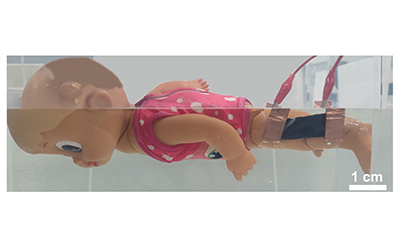FOR IMMEDIATE RELEASE
Blood can tell you a lot about how the body is functioning. For example, heart disease, diabetes and anemia are just some of the ailments that a physician can currently diagnose from a simple blood test. But other conditions aren’t so easy to detect, and instead require invasive procedures, such as spinal fluid draws or tissue biopsies, to diagnose conditions at early stages. Below are some recent papers published in ACS journals that report advances in the early detection of illnesses through a relatively unintrusive blood test. Reporters can request free access to these papers by emailing newsroom@acs.org.
Aptamer-Functionalized Carbon Nanotube Field-Effect Transistor Biosensors for Alzheimer’s Disease Serum Biomarker Detection
ACS Sensors
July 11, 2022
Early detection of Alzheimer’s disease is critical because it could allow patients to get a head start on therapies. Current methods are either highly invasive, not very accurate or expensive. Here, researchers developed a field-effect transistor biosensor using a carbon nanotube thin film and short segments of nucleic acid called aptamers, which act as receptors for two β-amyloid peptides. A blood test using the sensing platform detected low levels of two Alzheimer’s disease-related biomarkers in human serum with high accuracy and sensitivity, and it outperformed previously reported sensing methods, according to the researchers.
Covalent Biosensing Polymer Chain Reaction Enabling Periphery Blood Testing to Predict Tumor Invasiveness with a Platelet Procancerous Protein
Analytical Chemistry
Jan. 17, 2022
Tests targeting molecules in the bloodstream could help physicians catch tumors before they establish a secondary site. As tumor cells travel through the blood, they overexpress a protein called focal adhesion kinase (FAK), and platelets expressing FAK on their surfaces glom onto the cells. These researchers simplified three existing FAK screening techniques into one blood assay. A probe was strongly attached to the protein using one of its inhibitors, which allowed researchers to treat samples harshly to remove interfering molecules then amplify the signal with the polymerase chain reaction (known as PCR). With electrochemistry, the sensor sensitively detected the protein in serum samples from hepatocellular carcinoma, or liver cancer, patients.
Plasmonic-Based Biosensor for the Early Diagnosis of Prostate Cancer
ACS Omega
Jan. 5, 2022
According to the American Cancer Society, prostate cancer is one of the most commonly diagnosed cancers in men living in the U.S. But detecting it early currently requires a blood test, then if that’s positive, an invasive examination and tissue biopsy are the next steps. In addition, both false positives and negatives are common. Here, researchers created a tapered optical fiber plasmonic biosensor with metallic gold triangular nanoprisms. In a proof-of-concept experiment, it could detect a panel of micro-RNAs (miRNAs) associated with prostate cancer in serum samples from seven patients. The biosensor was highly specific and sensitive, and the researchers say that it could also be adapted for the early diagnoses of other diseases.
###
The American Chemical Society (ACS) is a nonprofit organization chartered by the U.S. Congress. ACS’ mission is to advance the broader chemistry enterprise and its practitioners for the benefit of Earth and all its people. The Society is a global leader in promoting excellence in science education and providing access to chemistry-related information and research through its multiple research solutions, peer-reviewed journals, scientific conferences, eBooks and weekly news periodical Chemical & Engineering News. ACS journals are among the most cited, most trusted and most read within the scientific literature; however, ACS itself does not conduct chemical research. As a leader in scientific information solutions, its CAS division partners with global innovators to accelerate breakthroughs by curating, connecting and analyzing the world’s scientific knowledge. ACS’ main offices are in Washington, D.C., and Columbus, Ohio.
To automatically receive press releases from the American Chemical Society, contact newsroom@acs.org.
Note: ACS does not conduct research, but publishes and publicizes peer-reviewed scientific studies.





